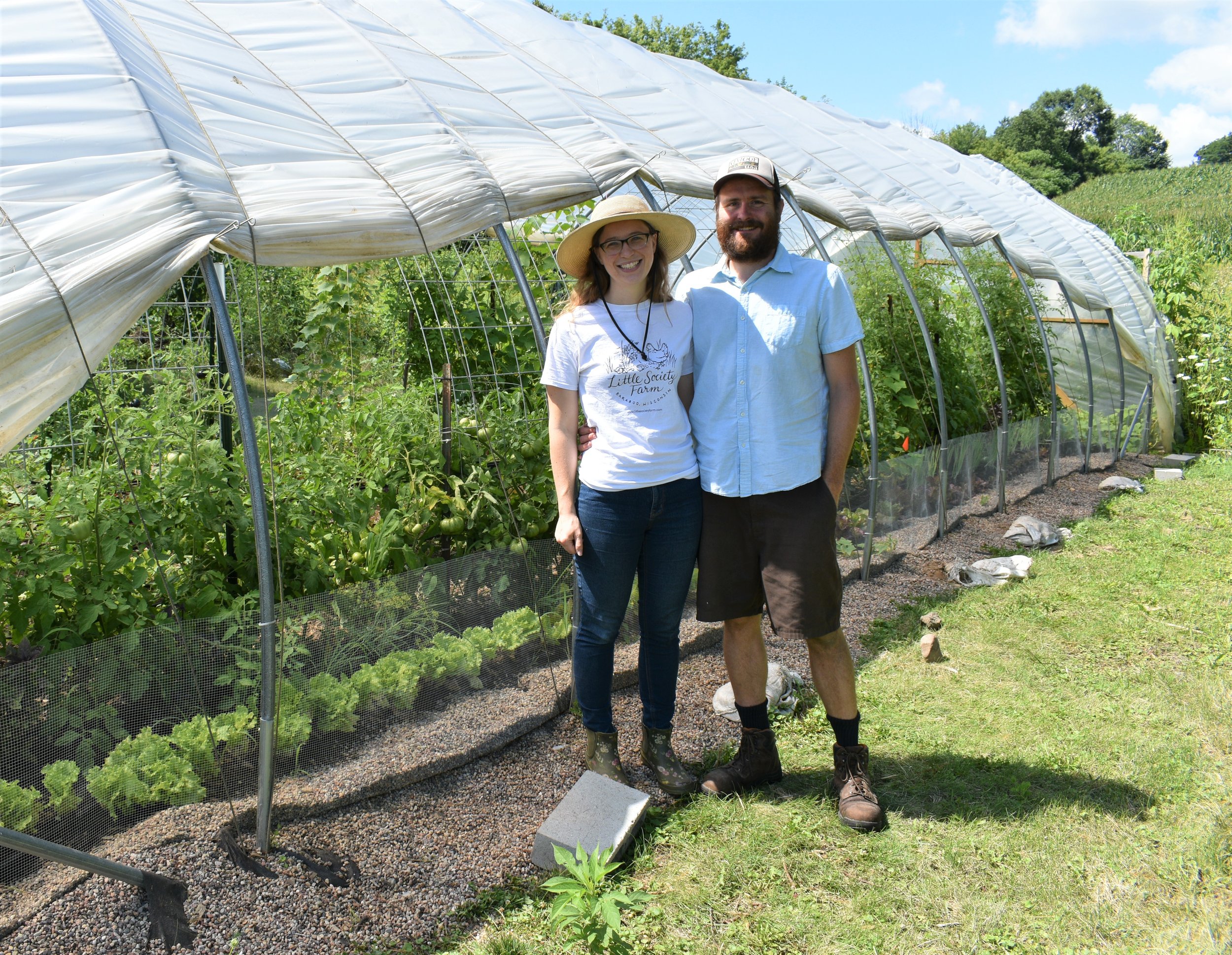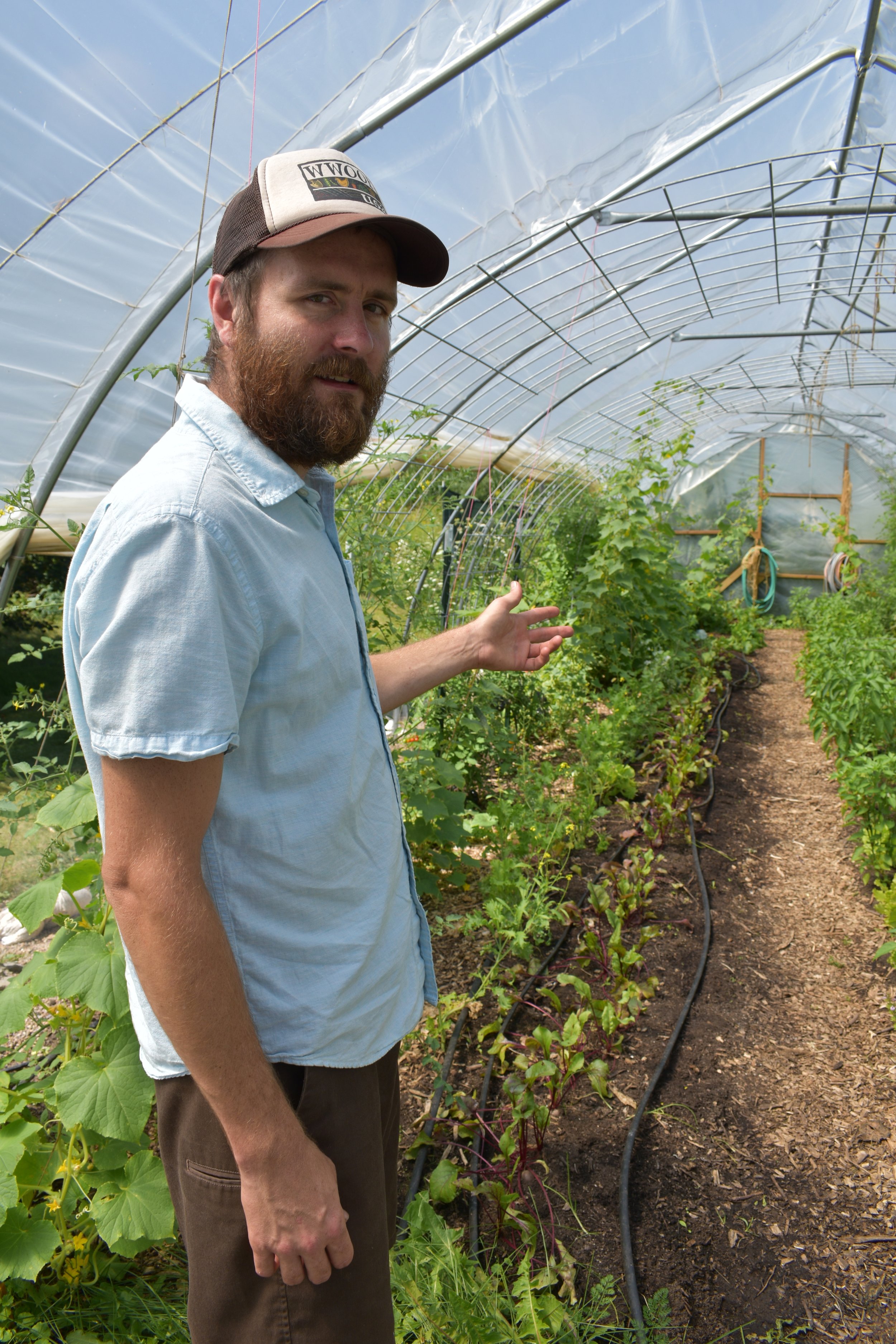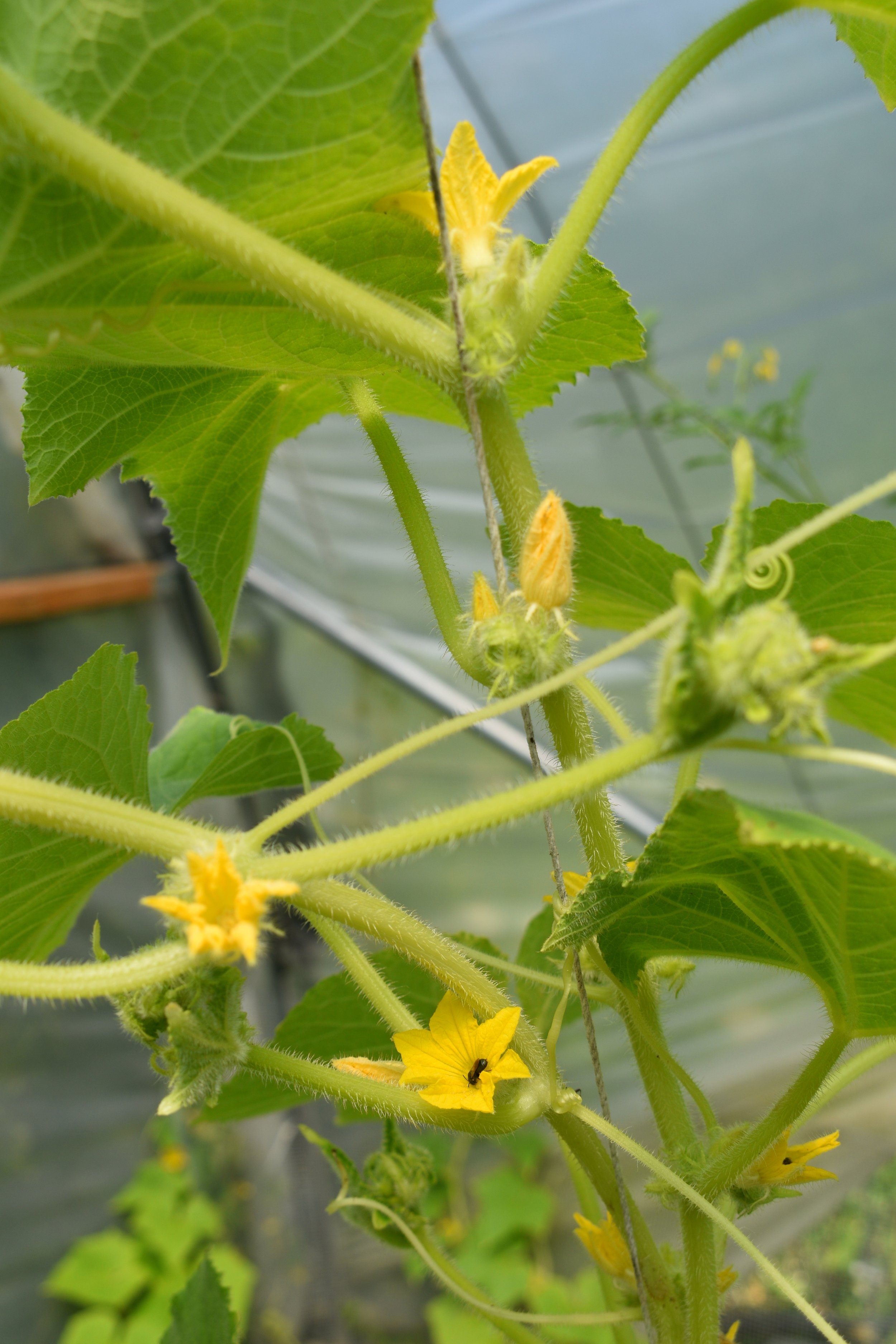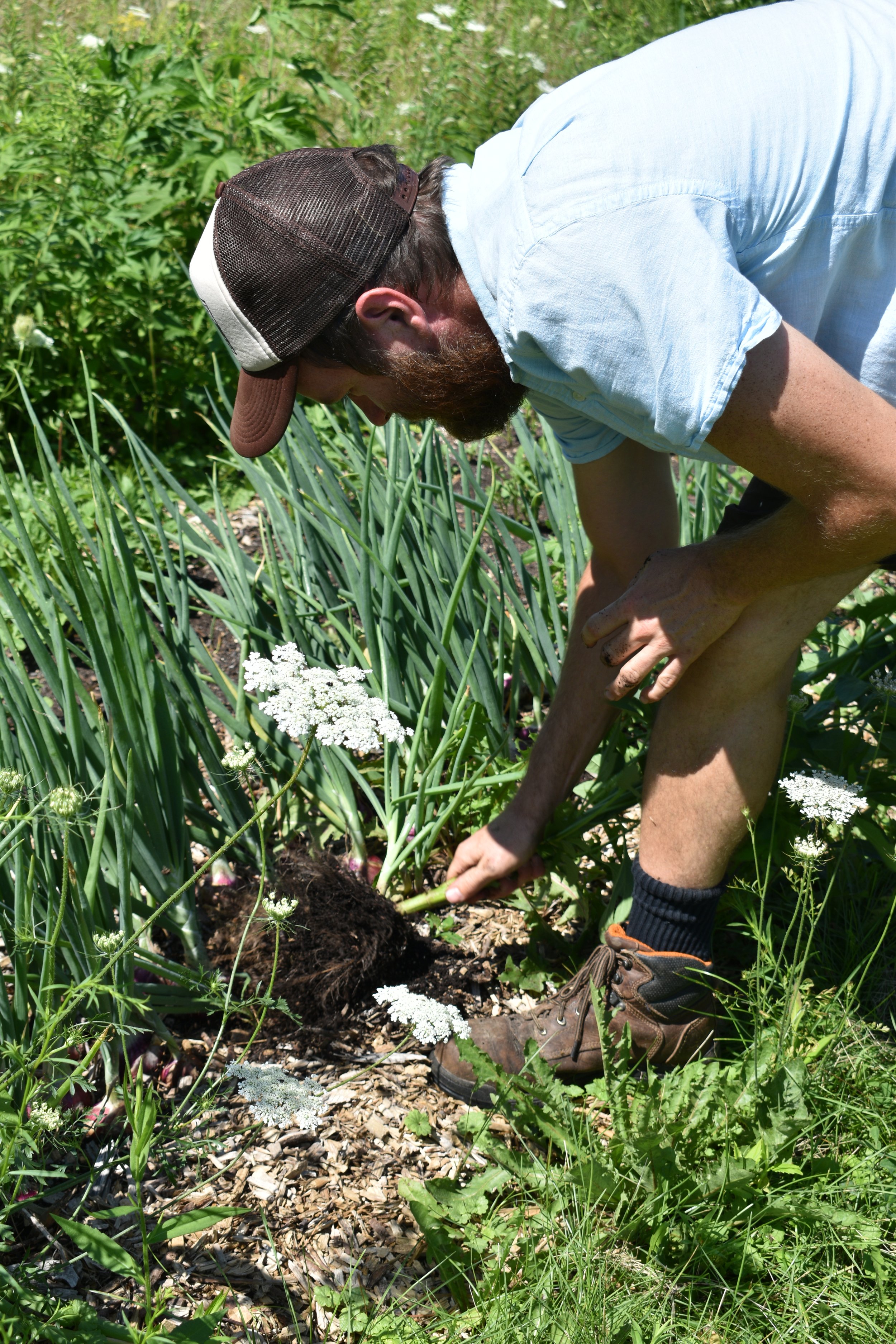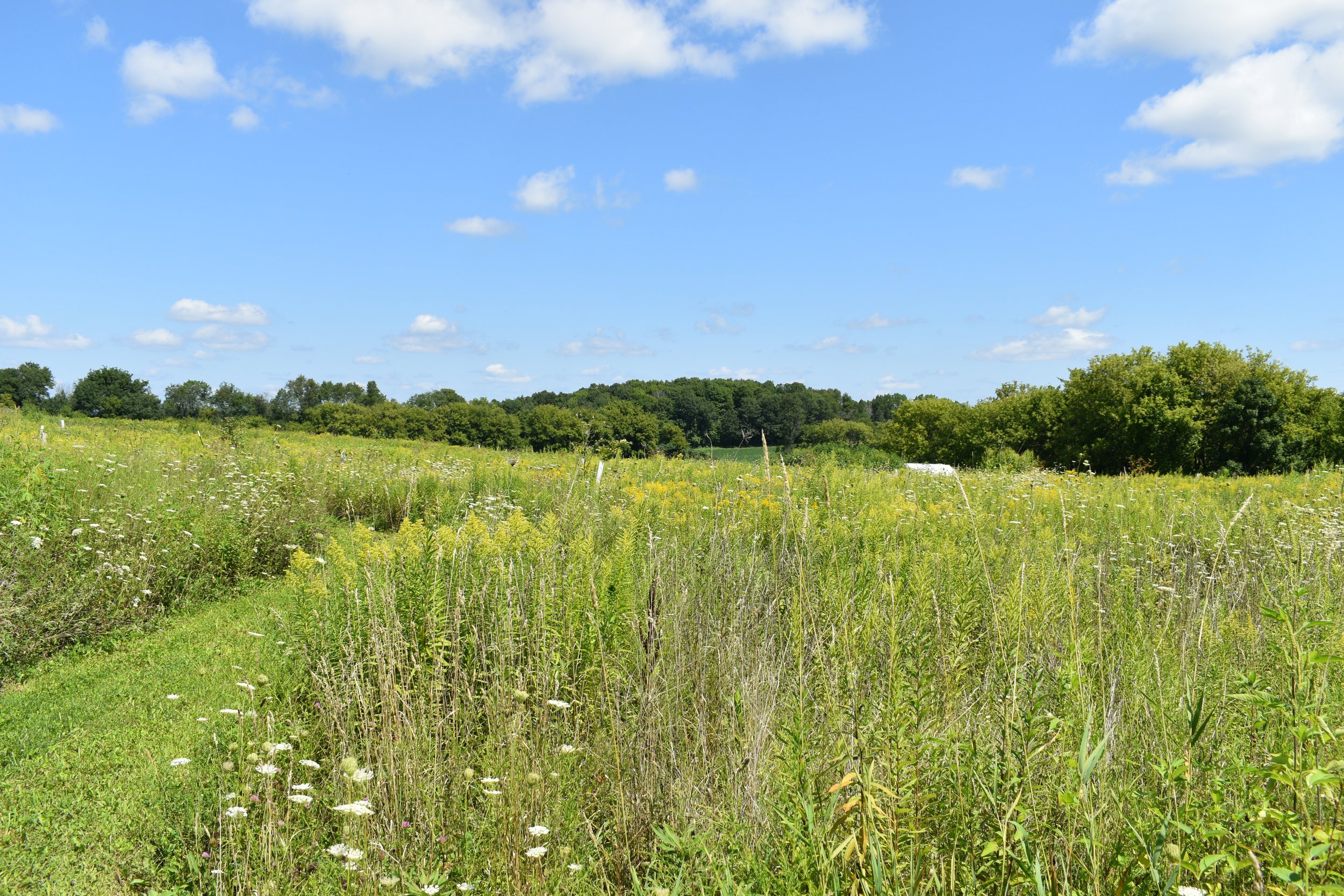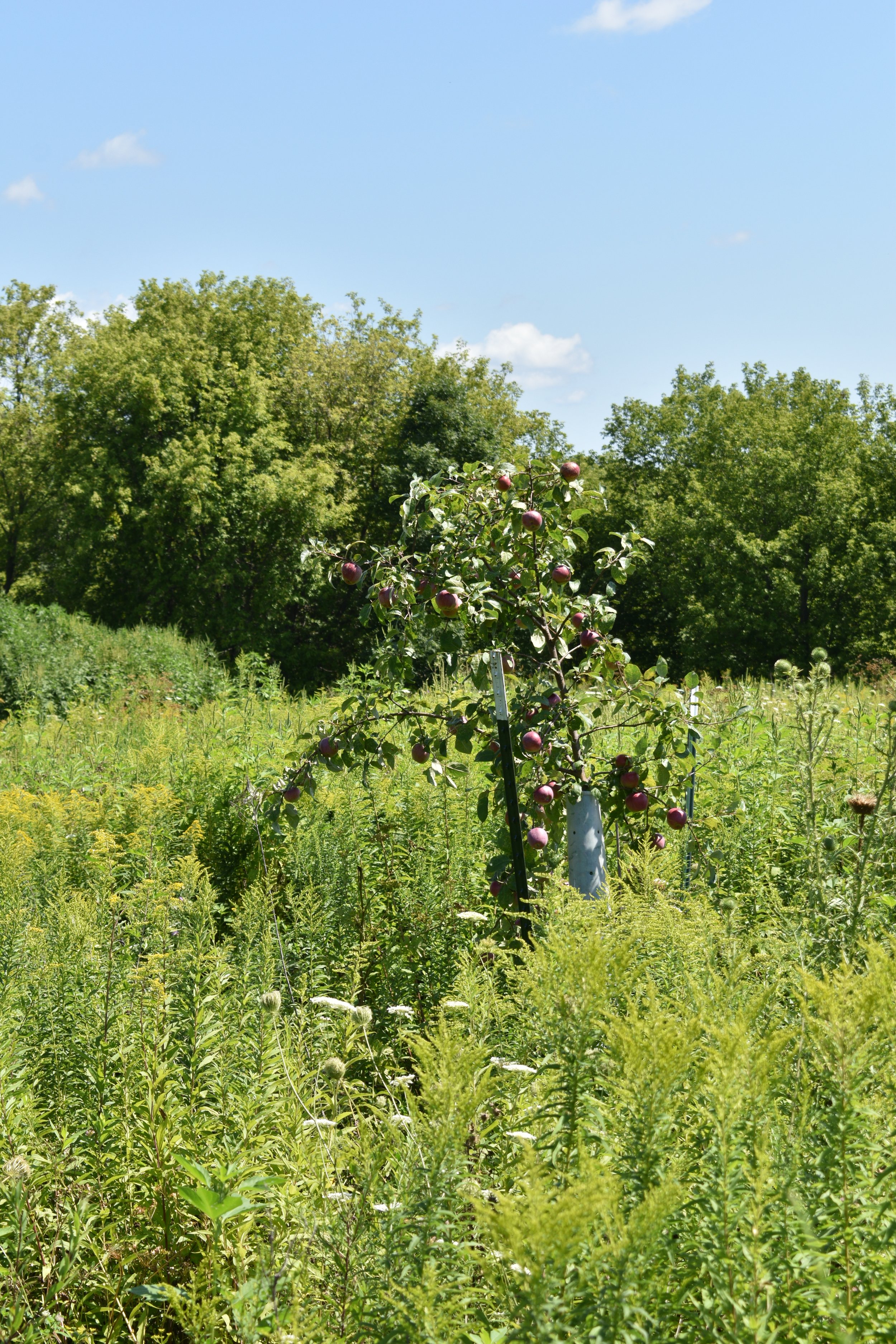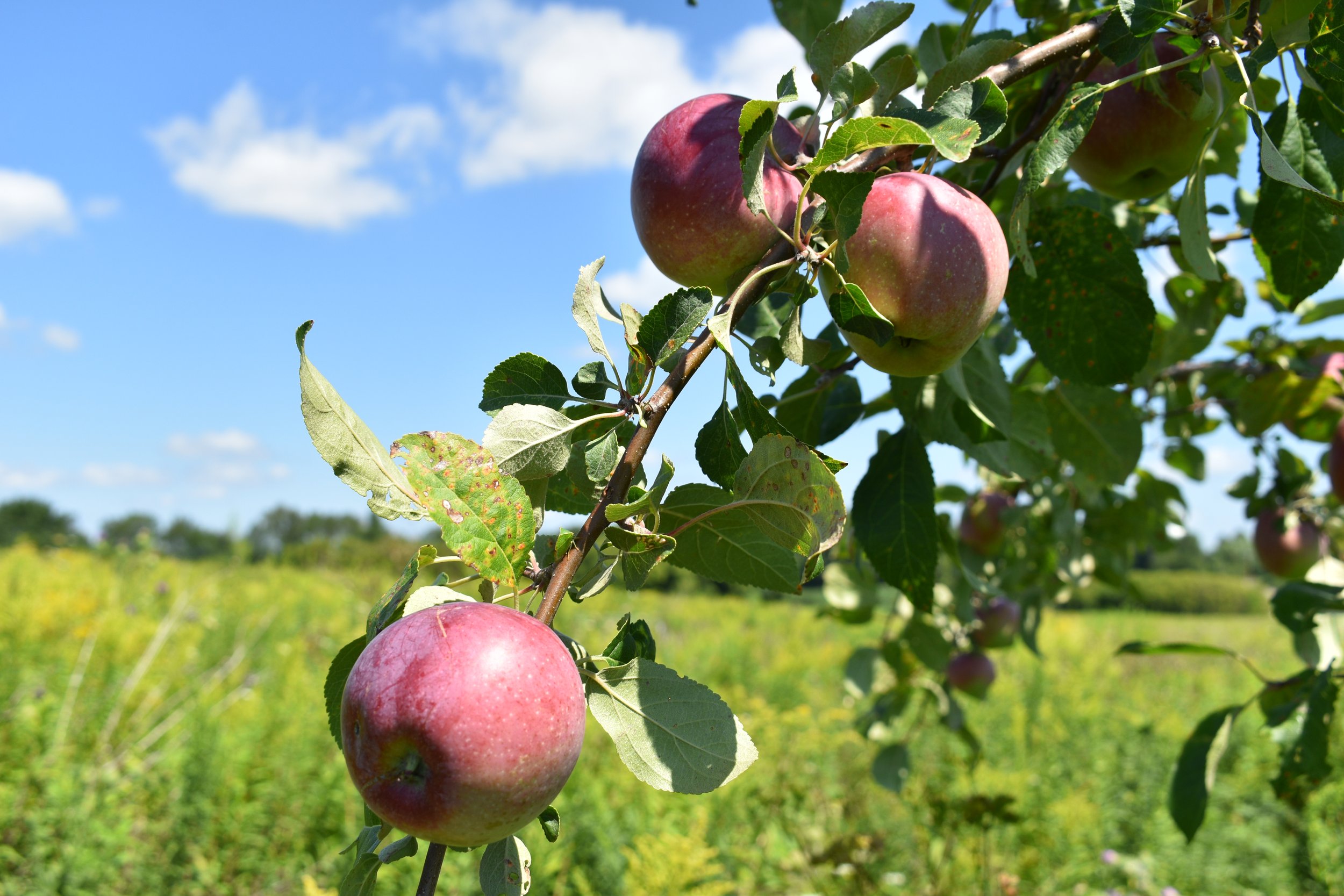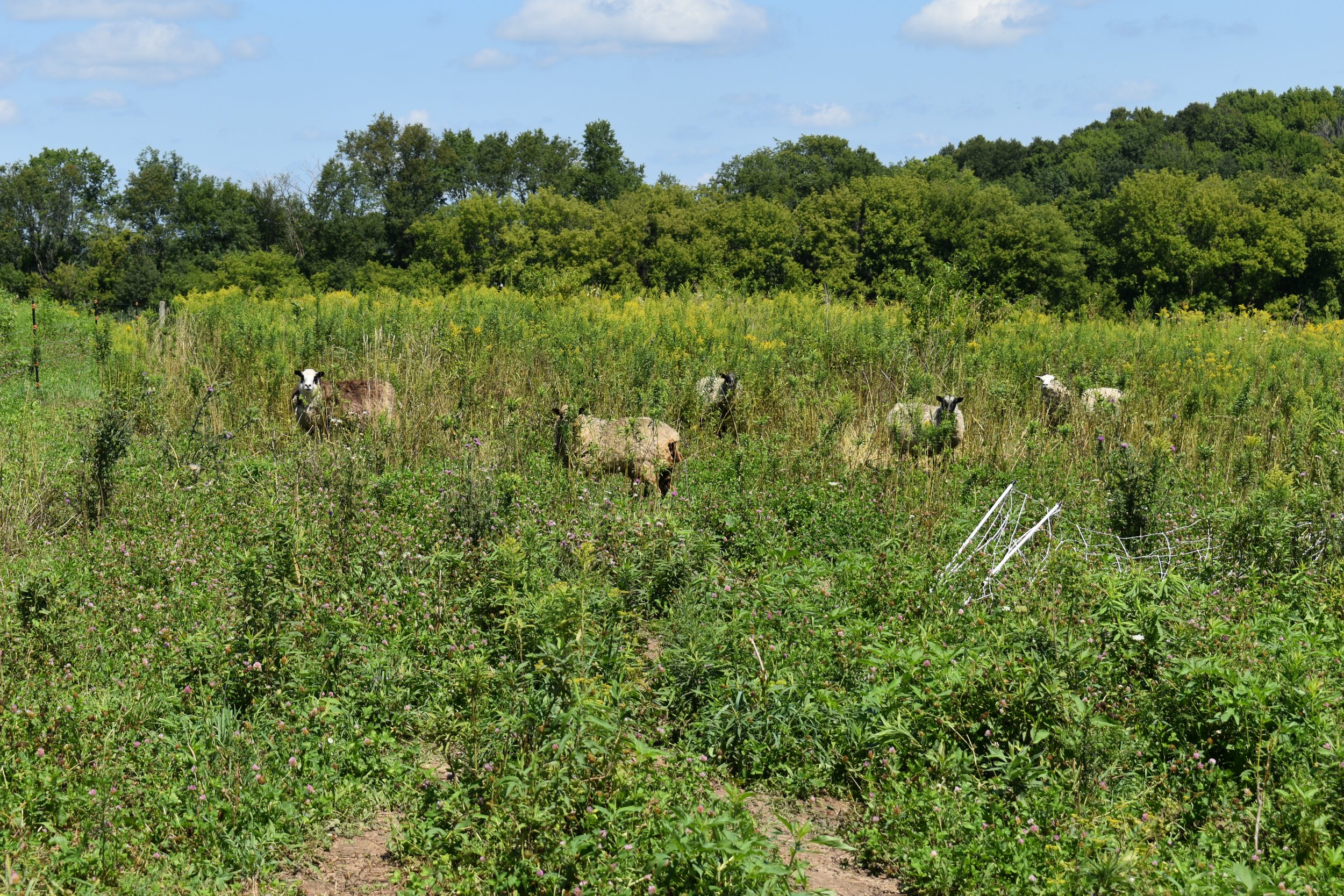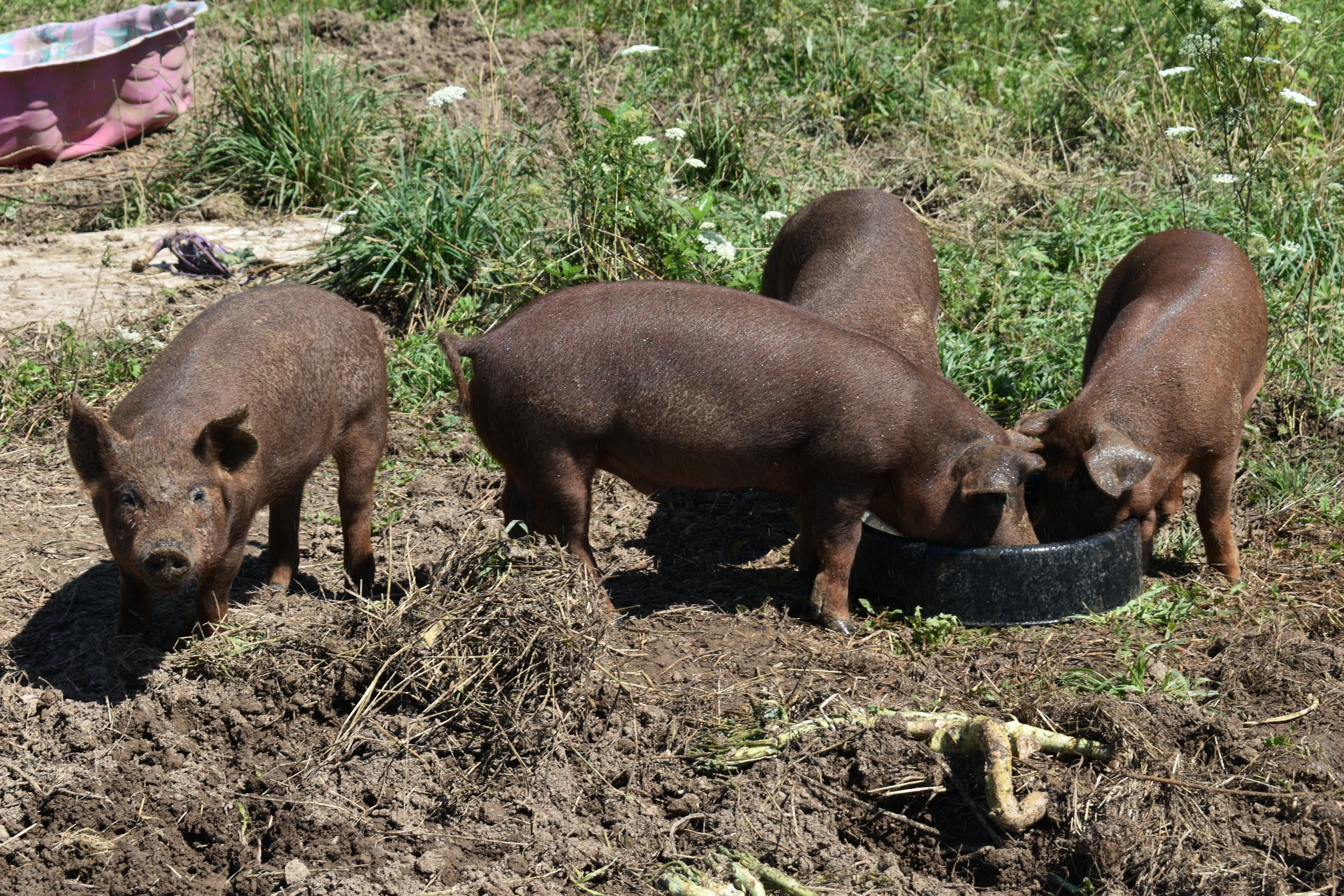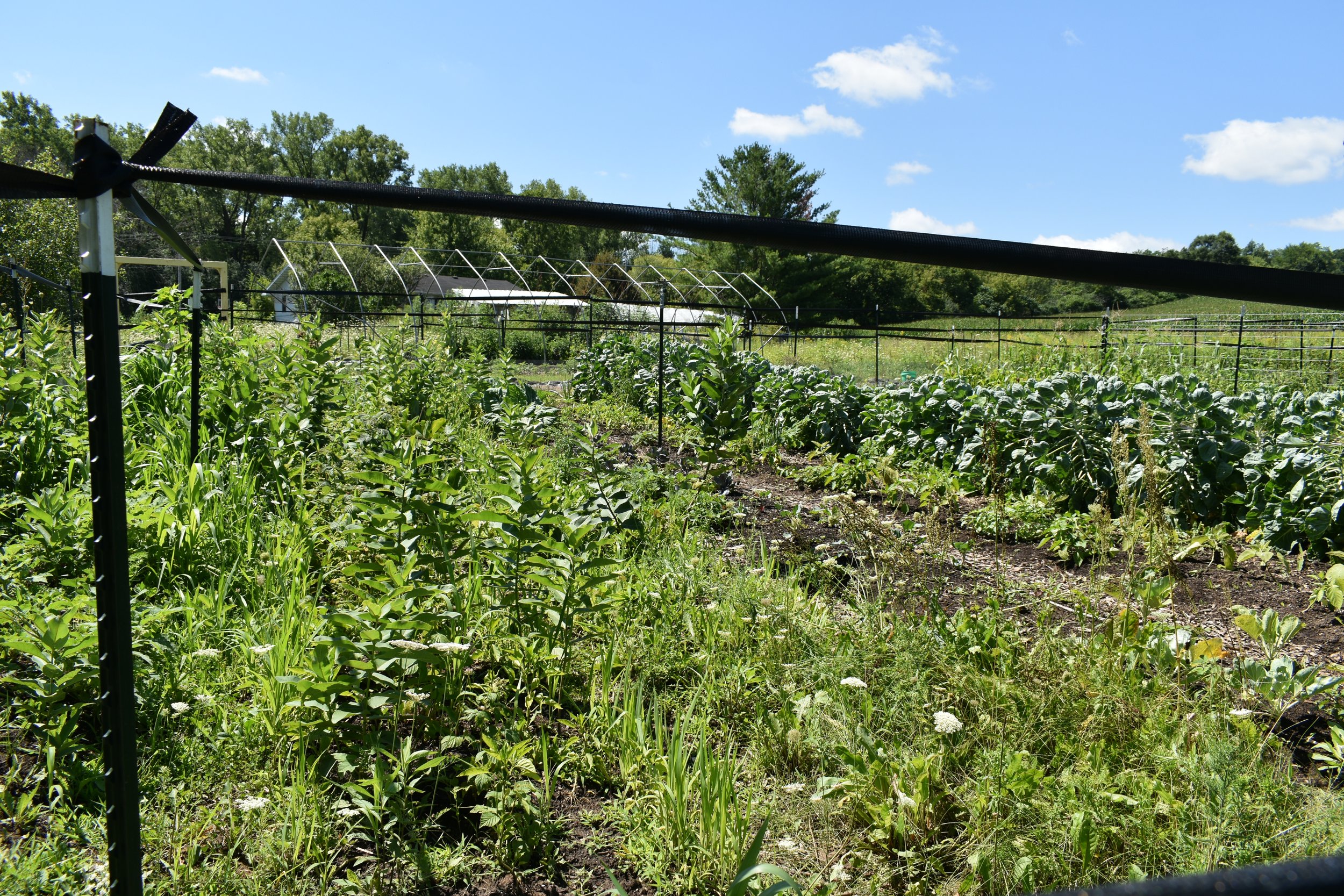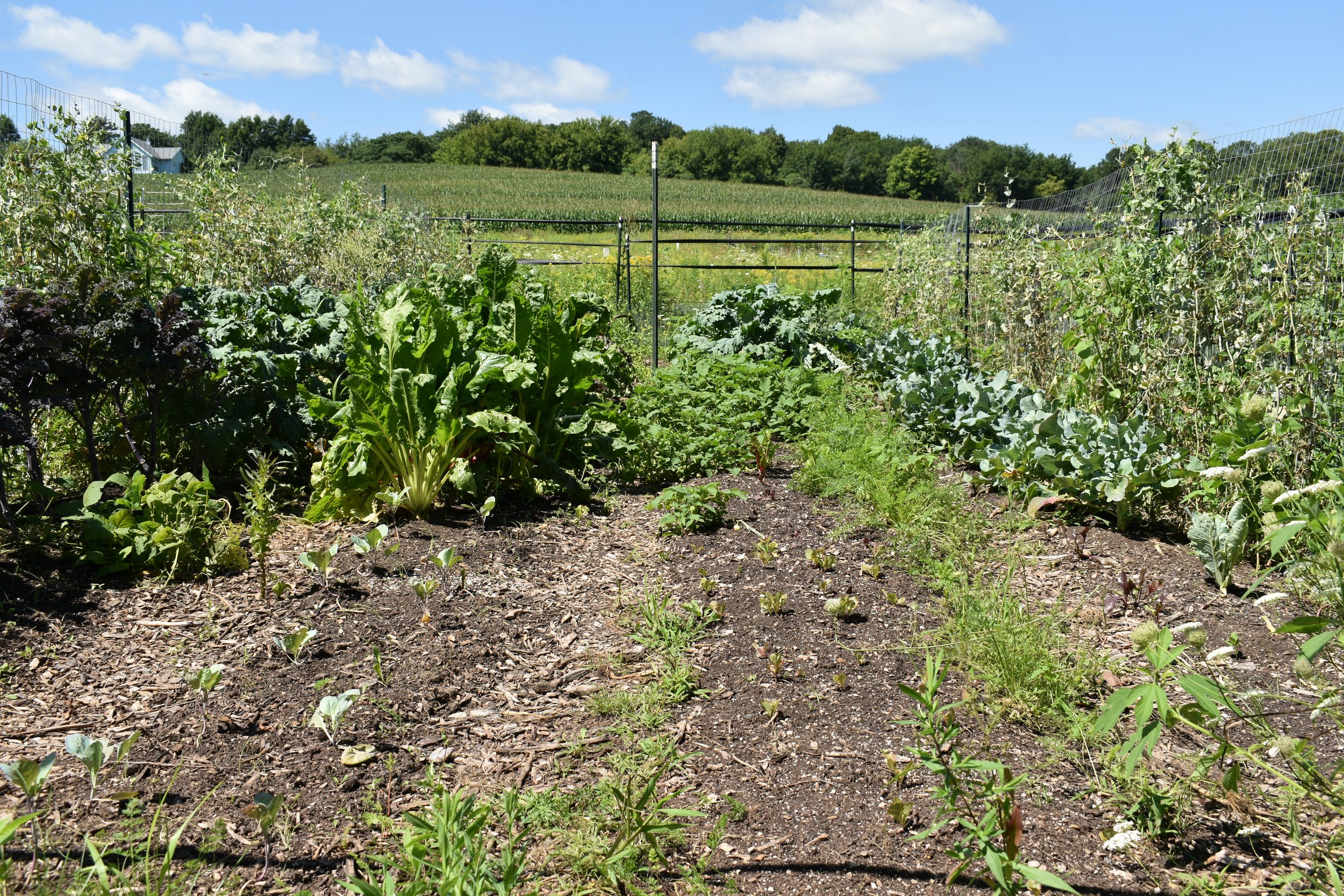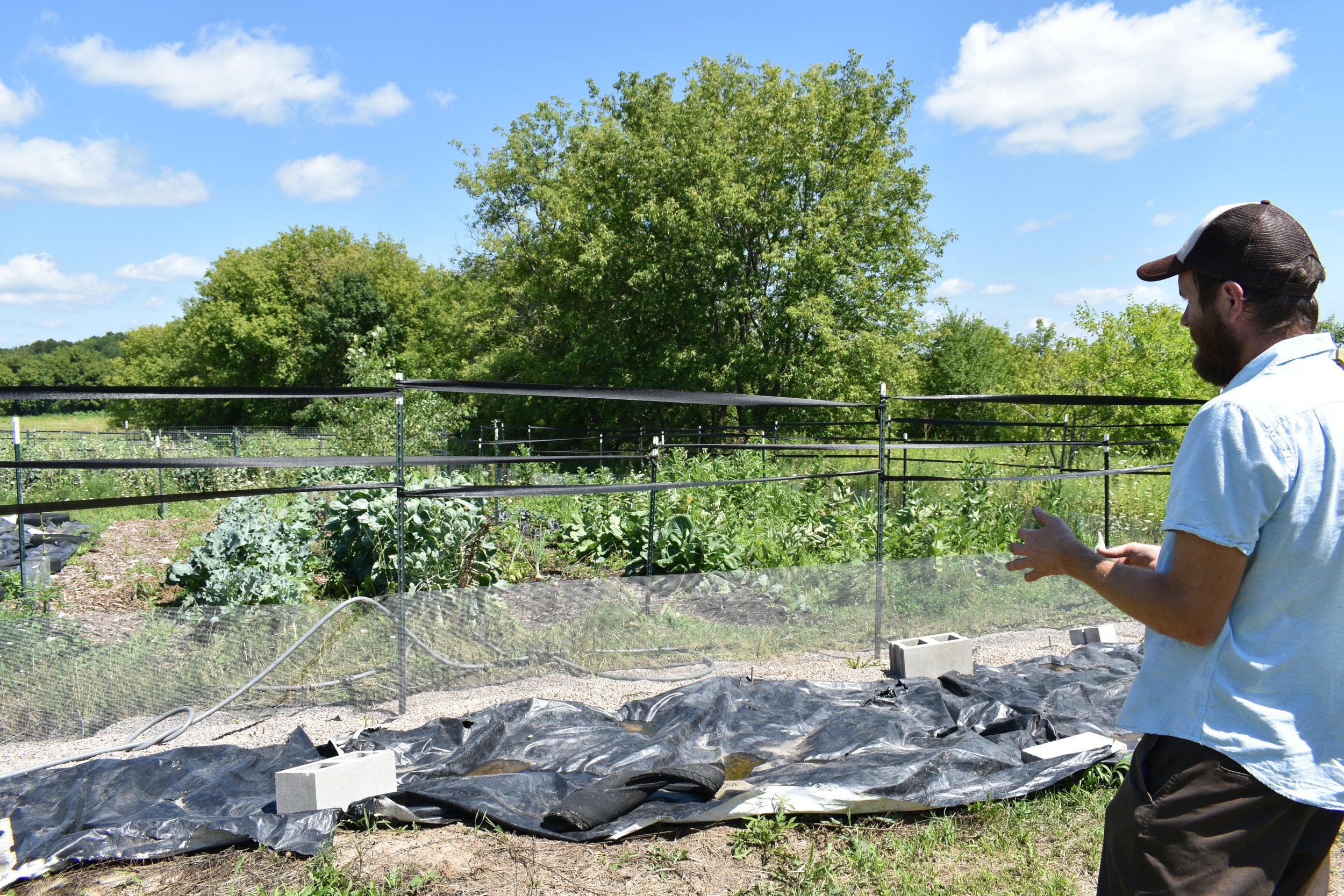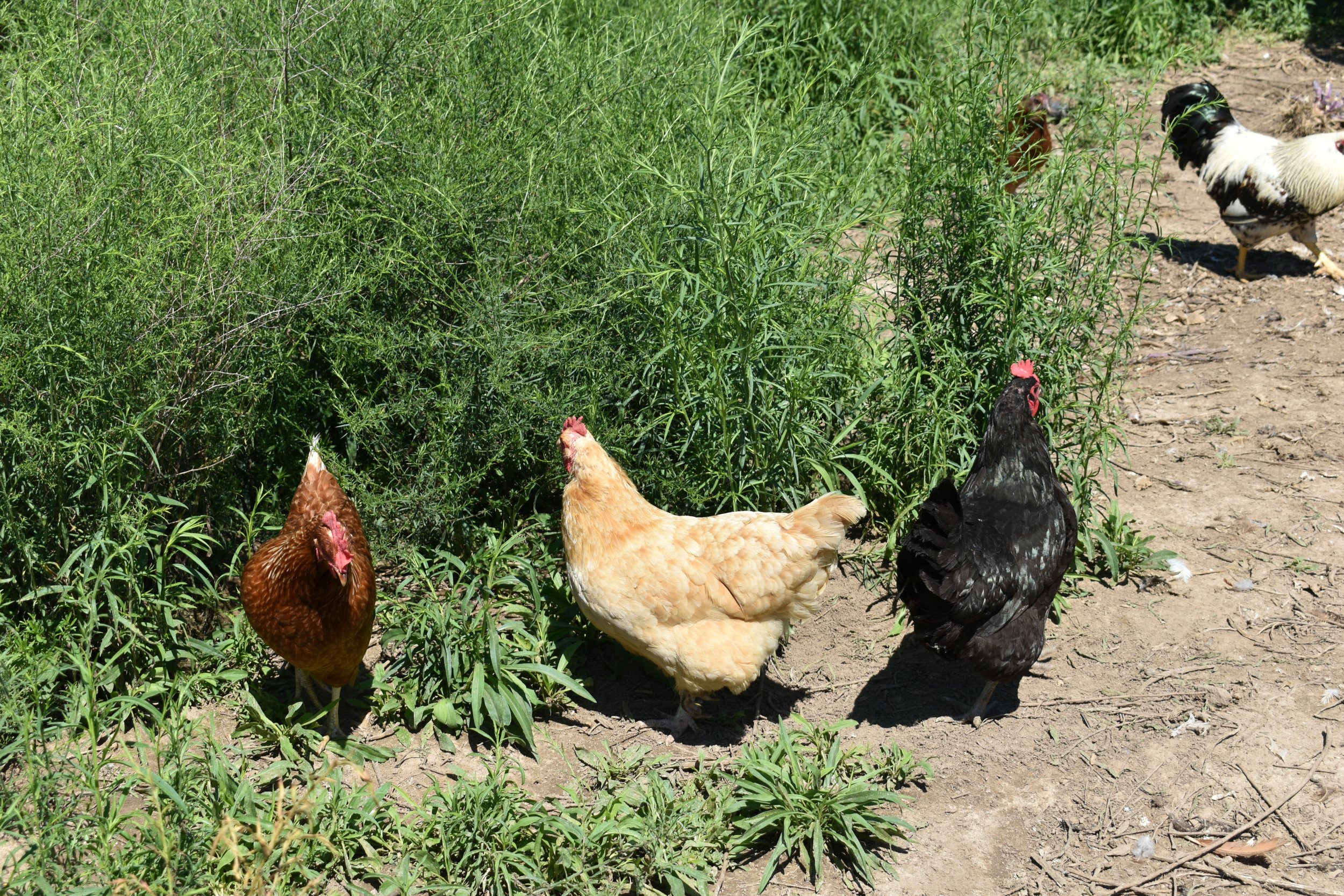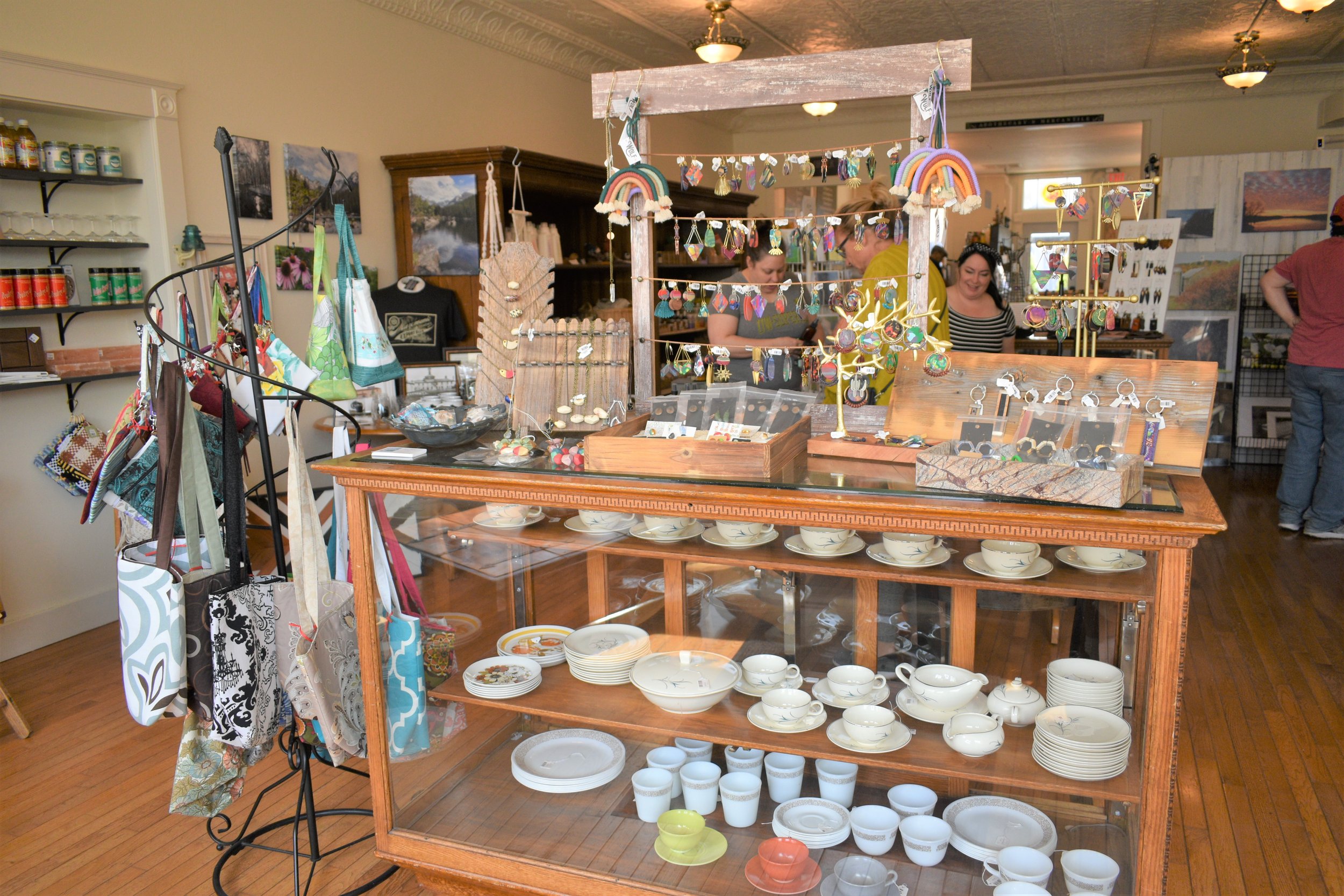Little Society Farm: a journey of sustainability
“I can definitely speak to my journey with it, which is I didn't really grow up farming or really spending a lot of time outside except for golfing, which is sort of a different way to interact with nature”, said Brad Wissmuller sitting next to his partner Eleanor Johnson. Brad and Eleanor are the owners of Little Society Farm located in Baraboo, Wisconsin just a stone’s throw from Devil’s Lake State Park.
Little Society farm is a Community Supported Agriculture (CSA) participant. The United States Department of Agriculture defines a CSA as a community of individuals who pledge support to a farm operation so that the farmland becomes, either legally or spiritually, the community's farm, with the growers and consumers providing mutual support and sharing the risks and benefits of food production.
“I basically was just used to getting all my food from the grocery store. My dad started a vegetable garden, but I never really got involved in it. Then I was working a job in the Madison area that supplied employees with a little growing space if they wanted. I was traveling all the time, so I barely had any time to spend on it. The little kale plants that I just threw in the ground kept producing and that was this amazing moment, because I was like, wow, nature is able to just take care of growing these plants. The plants provide food and sustenance and so that I think, that was the spark for me. Since then, we’ve took several detours, but that was, I think 12 years ago or so and we have been working towards some sort of farm,” Brad said.
Eleanor chimed in and said the couple had been trying to get some experience on farms. At one point they found themselves living in Omaha, Nebraska where she worked at a library. “We volunteered with a CSA farm and had a community garden plot and were CSA members.”
Brad explained the CSA model is one where you really are providing an alternative economy basically. “People really do feel like they're part of the farm. They can help you decide what to grow. If it's a bad season or crop failure, they sort of share in that burden as well.”
Eleanor said they have shifted their CSA model more towards customization, allowing people tell them which vegetables they really enjoy and those they don’t. “Ultimately, we don't like to grow things if they're going to just end up in the trash or compost. We are all about reducing food waste”.
While living in Omaha, they agreed getting involved with some of those farms was really beneficial. Brad and Eleanor participated in a volunteer share at one of them, the Iowana Farm in Crescent, Iowa. While volunteering, Brad said they learned a lot from the farms founder, Theresa Troxel. “She's an awesome person. She used to be a physicist at Stanford University and then moved back home to her Iowa roots and started up an organic farm. She was just like a mother, generous.”
Prior to living in Omaha, Brad and Eleanor spent a couple summers where they took part in the Worldwide Opportunities on Organic Farms (WOOF). One of those summers they terminated a lease or rental agreement and traveled around Germany working on farms. “We worked on three different farms, and traveled around the country to do that. We would stay on a farm for a few weeks or for a month at a time,” Eleanor said. Brad added, “In exchange for room and board. No money is exchanged, it's intended to be an educational opportunity and you're helping them with some of the work on the farm, so you're getting hands on experience.”
Brad and Eleanor’s German farming experience in 2013 was the precursor to them moving to Omaha and working on the Iowana Farm, getting more involved with CSAs.
Both recalled getting involved in growing on their own in a yard, and growing something in every nook and cranny they could use. On what used to be a “regular lawn”, they had 100 tomato plants. They admitted it got “a little out of hand”, but said it was definitely nurturing that love for growing plants, taking the seed and seeing what can happen with it.
Eventually, Brad and Eleanor moved back to Wisconsin to be closer to their families.
Back in Wisconsin, they spent a few months on different farms getting more familiar with animals. In their vision of starting a farm, they wanted to develop some sort of integrated, whole ecosystem type farm where animals are an integral part of the ecosystem. Brad said, “We wanted to get more exposure to that. That's sort of the journey that eventually led us to purchasing this farm in the fall of 2017. The economics of it, you know, we still needed to be working off farm jobs and I was full time up until this past February, when we decided I would jump full in to try and turn this farm into something that can sustain us a little bit.” Supportive, Eleanor said, “I think that we were both really on board with Brad taking the leap to do full time farming, because well, I mean, neither of us are getting any younger. So, we kind of switched. I was the one who was under employed before. Brad worked full time and then we switched over to him working full time on the farm and I'm working more hours at a library now. We're taking turns on who's sort of supporting the farm with outside income while we're trying to figure out how to ramp up production to make the farm itself, a sustainable enterprise.”
When Brad and Eleanor started the farm, they had a slightly different vision. They both read a lot of different books drawing inspiration and became interested in permaculture. They learned there's a lot of time and expense in getting some of the systems needed set up and feel that they're not really necessarily sustainable on an economic level in their current system.
“So, we had planted a bunch of trees (chestnut, apple, etc.), for instance, and had plans to do these contour swells for water management for them. We quickly realized there was an overwhelming amount of labor for the two of us. Those trees that we bought have been consumed by the pasture, deer and rabbits. There were a lot of wake-up calls with that.”
During this project, Brad and Eleanor started to learn more about and discovered different ways to grow annual vegetables that people are used to and are interested in. Producing a sustainable harvest from the trees would take years to realize.
They both feel their journey in farming has been exciting, and noted learning how people have grown food in a way that respects the land and in a way that fits into the ecosystem. “I think that's sort of always our goal. It’s not really worth it if we're not doing it in a way that can sort of benefit the broader ecosystem and fit into it, versus taking away and potentially harming it. I think the goal needs to be to get more people on the land and into it if not farming, and being a part of a farm and being connected with land and nature in a productive beneficial way,” Brad said.
Little Society Farm has a 20-acre spread on which they grow somewhere between 40-50 different vegetables. They stressed their aim is to provide their CSA members with options. Offering fun varieties whenever they can, like tomatoes of all colors, purple beans, and kohlrabi among other favorites.
“One of the benefits of being local, is we're able to harvest these different varieties and get it to our CSA members primarily or at the farmers market often within 24 hours. It also allows us to grow varieties that wouldn't work on a larger scale, because they don't necessarily store as long like heirloom variety tomatoes that aren't gonna hold up well on a grocery store shelf or in a shipping container,” Brad said.
On the animal end of the spectrum, Brad and Eleanor, have some sheep, pigs, and chickens for free range eggs. Brad and Eleanor have found the pigs to be natural tillers, while the sheep help keep the pasture somewhat manageable, but admittedly not as well as goats do. The sheep are a work in progress as the couple learn the finer points of shearing and harvesting wool. “The goal is to grow that part of the farm a little bit at a time, but we're kind of cautious about doing that and taking on more. We don't want to do that unless we feel confident that we can take care of them and do so in a beneficial way to the overall system,” said Brad.
Giving back, and once on the receiving end of shared knowledge, Brad and Eleanor have enjoyed the help of others in exchange for a learning experience, even hosting someone from France. The couple are upfront about the fact that they’re still learning themselves quite a bit and always will be. “It’s felt like we had more of a little society on the farm this year, because we had like six people helping us out. So, it's been a really good group of people all working together,” Eleanor said with a smile.
Now, how they came up with the name, well, believe it or not, referencing a book. Brad obliged saying, “There was sort of this coincidence. I was reading the book Candide by Voltaire right before we had closed on this property. The book is such, that some people were sort of wandering through life, having a life in politics, a life in business, and a different religious life. And all of these people have found, basically, a lot of unhappiness and suffering in the world. At the end of the book, the one sort of redeeming thing, they stumble upon a farm and a farmer that has 20 acres and can provide for him, his family, and the community. He isn't even aware of some of the big world political things happening. They go off and start their own little society. They're thinking about other issues and really abstract, and said, ‘Yes, but we must cultivate our garden’.” Eleanor added, “So that's where we got the takeaway from. That of, okay, just find your 20 acres and cultivate your garden with your friends. I think part of the reason why we started this farm is we wanted to be able to do what we can in whatever small way we can. So, like if the world is feeling big and scary and we don't have any control over things, at least we can grow a little bit here and build a healthy ecosystem. In one way we can steward this land even if we don't feel like we have control over the rest of the world.
Brad and Eleanor also like the name Little Community Farm because of its multiple levels. They really want to be a part of the broader community. A community that is interdependent. Then there's the idea that in their long-term vision of the farm, it would be great to have the farm become more collaborative. “I think we'd be willing to give up more of the control ownership to be in more of a collaborative operative, like maybe an actual cooperative where we have multiple people all working together, making decisions together. Then there's the level of, we have animals and we have vegetables and then go drilling down even further where there's like the society of the soil food web. So, like all the microorganisms, the bacteria, all the roots in the soil, and the community that they provide for all those tiny organisms. That sort of defines how this way of farming is radically different than what standard and conventional farming is. Because really, that's mostly exclusively focused on chemistry and physics, whereas this is trying to nurture the biology and create like a whole ecosystem that will then support the plants and animals. Which is obviously not a new idea in the history of humanity, but one that we seem to have lost in western civilization,” Brad said.
Visit Little Society Farm on Facebook or visit them on the web.
